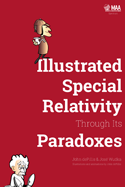Calculus Online and Geometric Excursions
by Steve KennedyMy department used the same calculus text for well over a decade. We’re a traditional place, and we used a traditional text. It is a splendid book–terrific exposition with great problems. A year or so ago, yet another edition came out, and we, collectively, gulped when we saw the price tag. More than $200. We decided to stop fiddling around and look seriously at alternatives. After a long and careful comparison period during which we read and discussed a big pile of calculus books, we chose an alternate text. This text features good exposition and good problems and, more to my present point, a price tag $100 lower than the original book.
The publisher’s representative of our original text learned of our decision and the reason for it, and offered various discount prices for various lengths of time. After considering the options, we moved on to the new text. This bargaining session left me feeling annoyed and manipulated. I’m a teacher. I’m not interested in playing negotiating games. I want to help my students learn and grow, and I would like publishers to help me by providing good books at fair prices–not marketing manipulations and games.
Now I work for a publisher. A publisher that, I believe, shares my view that our role is to provide quality books, especially textbooks, at reasonable prices. This publisher also puts out the newsmagazine you are reading. My new job (just part time; I’m still a math teacher) is to acquire those quality books from you, the MAA members who are writing them.
Your probably don’t think of the MAA as a publisher, and that’s natural. We are, primarily, a collective of professionals working together to advance and promote mathematics. But producing books of enduring value is a part of that collective effort. We’re a funny kind of publisher because the people writing the books and the people buying the books are, essentially, the same: MAA members.
One part of my new job is to market those books. I’m not really sure how best to do that, although I’m dead-set against backroom bargaining and rapid edition switching designed to kill the used-book market. I prefer to calmly point out to you the virtues of some of our books. I intend to use this space on a regular basis to highlight some of the terrific books we are publishing. I intend also to, frequently and loudly, point out the following: We publish really good books at very reasonable prices. You ought to buy them.
Let me tell you about two of them.


